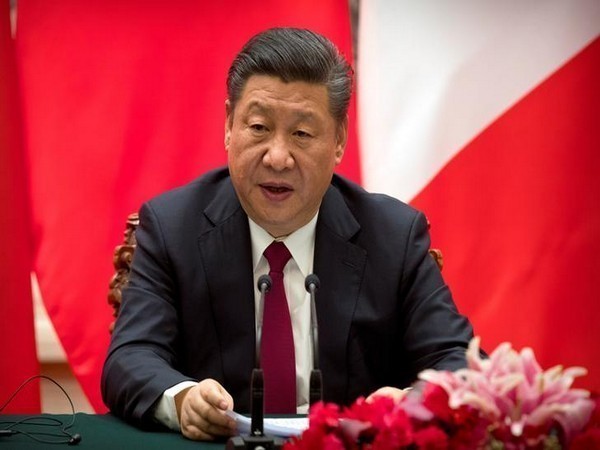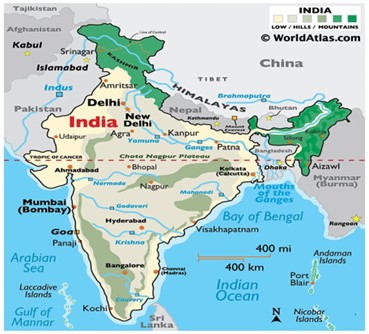
Factional Infighting in Chinese Communist Party
 Wed, 05 Jan 2022
| Reading Time: 3 minutes
Wed, 05 Jan 2022
| Reading Time: 3 minutes

The Chinese Communist Party (CCP) often comes across as a homogenous group to those studying China. This united front, however, is a carefully cultivated image that the CCP portrays – both to the world and its domestic audience. Beneath the surface, however, there exist “factions”, which is a combination of informal politics, relationships, and networks that jostle to dominate politics in China.
The two factions that dominate CCP politics today are the groups led by General Secretary of the CCP and President, Xi Jinping, and China’s former leader Jiang Zemin and his deputy Zeng Qinghong, whose group is often referred to as the “Shanghai Gang.” Jiang’s faction, which continues to have substantial influence, could be one of the main obstacles to Xi Jinping’s re-election and his dream of having an unprecedented third term as General Secretary of the CCP at the National Party Congress to be held in 2022.
Unlike in other countries where political infighting often takes a public turn, the struggle between the groups in China takes place in theatres that often seem far removed from politics. Messaging is subtle and not easily inferred. Speculation is widespread in determining factional infighting and truth is a victim. Certain political decisions could be seen under this light as they reflect Xi Jinping’s attempt to crack down on political opponents, or their pushback against his authority. If Xi succeeds, then obviously his path to success is assured.
The Entertainment Industry
The industry has close ties with CCP officials, business tycoons, and political cliques, and as a result, is intertwined with various political factors and is a forum for factional infighting. It is believed that the recent purge, which has included tax investigations about celebrities, stars being banned from online streaming and the closing down of talent agencies. State media calls for the ‘rectification’ of the industry is a call to Xi’s administration to urge cleaning out the “Shanghai Gang.”
An example of being caught in the crossfire of this power struggle is Zhao Wei, one of the most well-known actresses in China, whose online presence was suddenly wiped from Chinese social media without explanation. She is believed to be close to the founder of the Alibaba Group Jack Ma who in turn is close to the Shanghai Gang.
Furthermore, while purging the industry is seen as a wider warning from Xi and a sign of his authority, it also raises speculations about Xi’s control. To some extent, this crackdown reflects that Xi has been successful in taking control, but at the same time is facing internal opposition.
Third Historical Resolution
The CCP’s sixth plenum held in November, which published the third historical resolution, paved the way for the continuation of Xi’s reign, and called on party members to rally around Xi Jinping as “the core” was not without undertones that indicate opposition.
This helps explain why a relatively long paragraph in the communique on the Resolution is devoted to the policies of Xi’s political rivals Jiang Zemin and Hu Jintao. Their inclusion could be a concession to their followers, many of whom still hold senior positions. This also reflects that despite being in office for nine years and carrying out an extensive anti-corruption drive that has side-lined many political opponents, Xi has been unable to root out the influence of the disgruntled Shanghai Gang and other elites. The fact that the publication of the resolution was also delayed for a few days after the plenum points to divisions within the party on its contents.
Peng Shuai Scandal
Peng Shuai, a famous Chinese women’s tennis player publicly disclosed in a long post on Chinese social media that she had been sexually assaulted by Zhang Gaoli, a former member of China’s highest decision-making body, the Politburo Standing Committee and Vice Premier of the State Council. While Peng’s wellbeing is of utmost concern and answers have been demanded from around the globe, political commentators have pointed out the timing of this incident.
The scandal broke just days before the sixth plenum of the CCP was due to begin. Zhang Gaoli is believed to belong to Jiang’s faction and has close links to Huang Liman, a close confidant of Jiang’s. Commentators have stated that it is plausible to believe that the timing of this revelation was in part to discredit the Shanghai Gang’s standing within the CCP before the seminal plenum. Subsequently, Zhang Gaoli’s seniority meant he also promoted others, meaning a broader group of officials might be affected by his potential downfall and could be a part of Xi’s subtle signalling.
Additionally, Peng’s post on Weibo was not censored for 20 minutes. China has a highly regulated social media environment where posts about leaders, both serving and retired, are heavily monitored, and censored when required. Leaving the post up for 20 minutes, therefore, may have been part of a coordinated effort to let the information disseminate. What Xi would possibly not have expected is the global response and the backlash this has created.
Ultimately, it is unknown to what extent factional infighting consumes Xi’s headspace and the priority it garners. Nevertheless, while Xi Jinping is in a position of strength, there are differences within the CCP, and he faces internal opposition.
Xi Jinping’s show case event of Winter Olympics will be over on February 20, and the real game will begin after that.
*****************
Disclaimer
The opinions expressed in this article are the author’s own and do not reflect the views of Chanakya Forum. All information provided in this article including timeliness, completeness, accuracy, suitability or validity of information referenced therein, is the sole responsibility of the author. www.chanakyaforum.com does not assume any responsibility for the same.
Chanakya Forum is now on . Click here to join our channel (@ChanakyaForum) and stay updated with the latest headlines and articles.
Important
We work round the clock to bring you the finest articles and updates from around the world. There is a team that works tirelessly to ensure that you have a seamless reading experience. But all this costs money. Please support us so that we keep doing what we do best. Happy Reading
Support Us





















POST COMMENTS (6)
What Is Motivating the Shanghai Lockdown? - United Push Back
What Is Motivating the Shanghai Lockdown? - Jeffrey A. Tucker
What is motivating the CCP’s Shanghai lockdown? – BANNEDNEWS
What is motivating the CCP's Shanghai lockdown? -
What is the motive behind China’s brutal lockdown in Shanghai? – Market Subset
Kalidan Singh